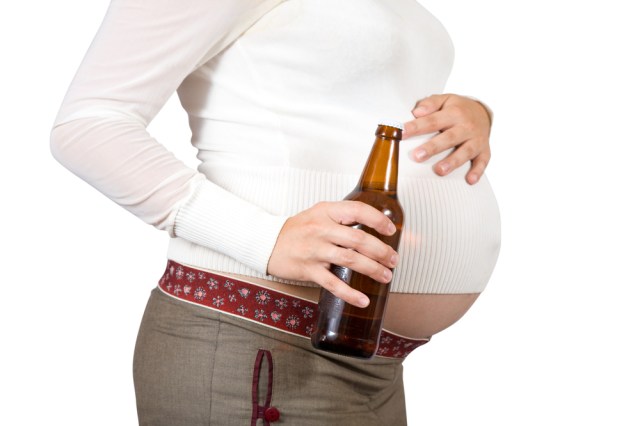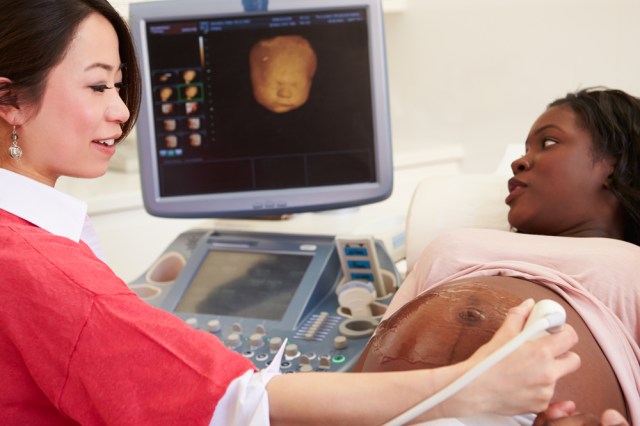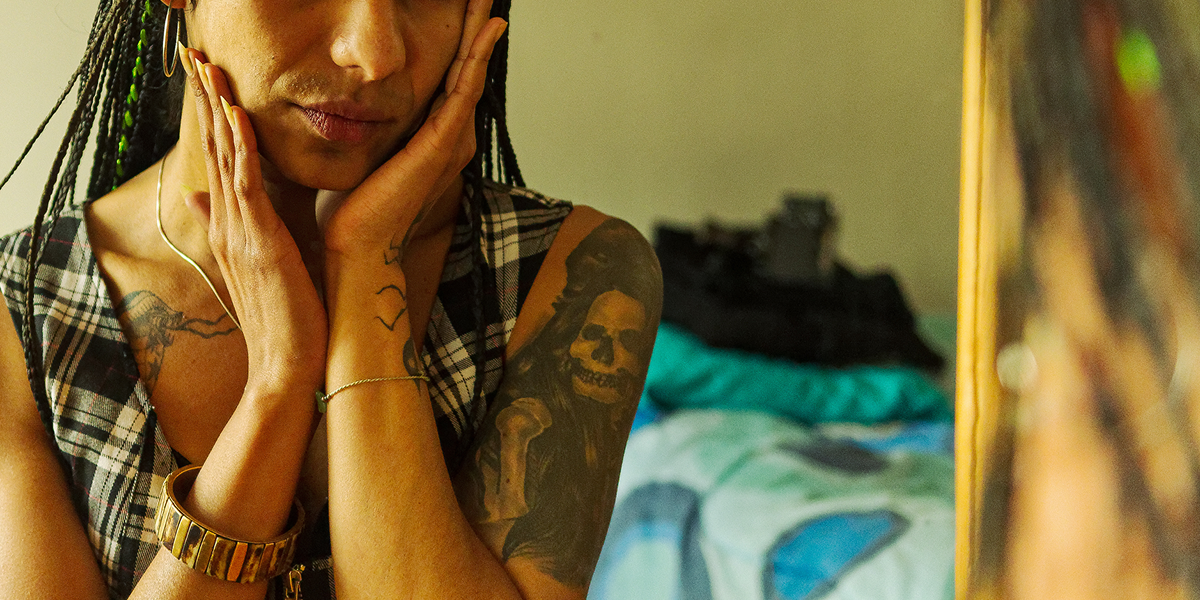Last week, Nature published an excellent editorial calling for more responsible discussion of scientific findings relating to pregnancy. The article, authored by Harvard associate professor Sarah S. Richardson and a panel of six academics, cites multiple examples of gross exaggeration, stunning oversimplification and flagrantly improper contextualization by the media. Over time, the cumulative effects of such reporting have resulted in scapegoating, surveillance and scientifically unjustifiable regulation of pregnant (and potentially pregnant) people.
In an unfortunately familiar historical example, mass amounts of doom-and-gloom reporting on fetal alcohol syndrome snowballed into today’s culture in which pregnant people face social condemnation (at best) and potential criminal prosecution (at worst) if they choose to partake of alcoholic beverages. Likewise, alarmist, racially-charged reporting on scientific research about “crack babies” led to a zero tolerance stance for use of cocaine and many other drugs during pregnancy, with states today literally jailing pregnant women in order to regulate their behavior. Yet numerous studies have shown that small amounts of alcohol present no serious concerns to fetal health. Likewise, while prenatal exposure to cocaine is certainly not ideal, studies have shown that its effects are no more harmful than alcohol or tobacco.

Common reporting errors when covering scientific research relating to pregnancy include: making unqualified extrapolations from animal studies to humans; failing to address paternal effects, which can be just as important as maternal effects; oversimplifying complex results to the point of leaving out important details; and leaving out the roles that society, class, race and gender play in determining health outcomes.
In popular discussion today, the article points out,
A mother’s individual influence over a vulnerable fetus is emphasized; the role of societal factors is not. And studies now extend beyond substance use, to include all aspects of daily life. … We urge scientists, educators and reporters to anticipate how [research in developmental origins of health and disease] is likely to be interpreted in popular discussions. Although no one denies that healthy behaviour is important during pregnancy, all those involved should be at pains to explain that findings are too preliminary to provide recommendations for daily living.
Today, pregnant people are bombarded with warnings against such varied things as eating meat, fish, and eggs; changing cat litter; driving cars; sitting in the sun or in massage chairs; standing near microwaves; bending their knees; being stressed; and more. Well-intentioned though it may be, the cumulative effect paints a pretty warped picture: that pregnant people are the number one health threat to their future children.

What strikes me about these societal mandates around pregnancy is how little they have to do with improving women’s health. Drug addiction, for example, is a serious health problem for many people, including some who may become pregnant. Why are their bodies only worth caring for when they house the looming specters of “damaged” future-babies? Why are legislators so fixated on creating special punishments for pregnant people, rather than programs to give everyone access to health education, drug treatment and family planning tools? (And why this obsession with pregnancy anyway? Is my health unimportant because my girlfriend can’t impregnate me?)
The truth is, rather than fixing society, many people would rather focus on controlling female-assigned bodies and guilt-tripping and demonizing women — something we already see plenty of elsewhere, so I guess it’s not that surprising to see this dynamic replicated when it comes to reproduction. It’s a hell of a lot easier for those in power to blame individuals for their actions (using “science” as justification) than it would be for them to create public policy that would actually help pregnant people get the care they need. And beyond this misogynistic victim blaming, many of the admonishments lobbed at pregnant people also conveniently play into racism and classism. (You know, par for the course.)
Due to economic oppression, women of color are less likely to be able to take time off of work, avoid environmental toxins, access prenatal care or eat nutritious foods. Programs like WIC can help individual families with some issues, but these interventions are hardly enough to level the playing field. If POC babies have worse outcomes long term, it’s not because uncaring mothers have created a “biologically doomed underclass.” It’s because classism and racism are working against these kids (and their parents) every step of the way. But again, it’s much harder to tackle those issues than it is to pick on people who lack structural access to power.

That mothers are blamed for their actions during pregnancy well into their offspring’s adulthood is a sad reflection of the lengths our society will go to in order to avoid naming (let alone confronting) sexism, racism and classism. That “science” is being used to justify this brings great sadness to my geeky, feminist heart. But the editorial in Nature gives me hope.
Pregnant or not, all women — all people — suffer when scientific research about pregnancy is misrepresented and misunderstood. But if widespread misconceptions can have such a powerful effect on our society, just think how much good the spread of accurate information could do.








Comments
This article has blown my mind, I had never considered the legitimacy of all the things pregnant people are told to do, not do, and/or stay away from. I wonder exactly how much of our current sciency knowledge is going to be filed away next to phrenology and using cocaine as a cure-all.
I dunno about not eating fish etc.,but not drinking alcohol while pregnant seems pretty basic to me.
It isn’t that simple. Obviously heavy drinking can lead to fetal alcohol syndrom is not a healthy choice during pregnancy. However, in many countries other than the US light drinking during pregnancy is considered normal. Studies vary, with some showing an impact from light/moderate drinking and others showing none. These discrepencies are likely due to the fact that it is difficult to control for other lifestyle factors. One large study from Denmark actually showed that mothers who drank small amounts of alcohol during pregnancy had children with better mental health, though the study noted that women who had the occassional drink during pregnancy tended to belong to a higher social class, ate healthier, and exercised more (the opposite of what one might expect), which may account for the disparity. Abstaining from alcohol is the easist way to make sure one doesn’t drink too much during pregnancy, but that doesn’t mean it is the only safe option.
http://www.livescience.com/41024-drinking-alcohol-pregnant-studies.html
even programs like wic are hard to use. i work in a grocery store and there are few things more difficult than figuring out what someone is eligible for, what food they have coming to them, etc. it is way too complicated and doesn’t really give you all that much food. i know some people who utilize the program and don’t use some vouchers because they’re too impractical. it’s a bandaid on a nutritional bullethole.
Duh! Don’t you womyn know that all you are are baby vessels??!!
P.S. Thanks for the article!
P.P.S. Are are?? sounds so weird.
“(And why this obsession with pregnancy anyway? Is my health unimportant because my girlfriend can’t impregnate me?)”
I love this article.
Ok, so as a scientist actually researching the developmental origins of disease, I find some problems with this. There is a huge problem with science and the media – and the problems stem from both sides. There are scientists who are crap at speaking to the media without using lots of jargon, and the media wants to sell a story, so science is so often hyped up. This isn’t a problem with the actual research people are doing, it’s with how it’s communicated.
I do think that some of the recommendations pregnant women are given are probably not based on research, rather from popular articles written by people who don’t understand the science.
I personally think that the mother should be looking after herself. Keep yourself healthy and your baby will be too. Certain well known things like alcohol and smoking should really be avoided – though care should be taken if you’re heavily addicted as the stress of withdrawal can be just as bad.
tl;dr science is often badly reported in media, look after your health, for yourself first, baby second.
Thank you for writing this article! This is something that needs to be talked about way more. Parent shaming is so messed up.
I don’t know if this is current practice/policy/law, but I’ve heard that in Pittsburgh hospitals would automically drug-test any person giving birth who hadn’t had prenatal care, and if she tested positive her child would be taken away. I heard this from a woman who used to work for Child and Youth Services and from a woman who had this happen to her- her now-5 year old was taken away from her because she tested positive for pot and she’s still fighting to get her back. :( :( :( Just awful.
All I can think about is all the stuff modern industrialized people are exposed to whether or not they are people who will gestate or lactate and how those things show up in breast milk.
Some of it can’t be avoided even if you have economic clout.
As a society we can blame blame away at a mother but it is collectively our fault in ways.
Secondly a “healthy” pregnancy and “good” parent only go so far man. People make their choices but partly those choices are created by circumstances beyond our control and that of our parents.
Sorry if this is disjointed but I have feefees about mother blaming and being “disabled”.
I’m so glad to see this article here! I’m utterly sick of women being held to such exacting standards when it comes to reproduction and giving birth to healthy children. My seventy-something mother apologized to me a year ago because I had an extremely mild birth defect, and she felt guilty. It’s mind-boggling. We can’t control every environmental factor, but somehow society expects women to do just that during pregnancy.
I feel curmudgeonly.
Thanks for the inclusive language in this post.